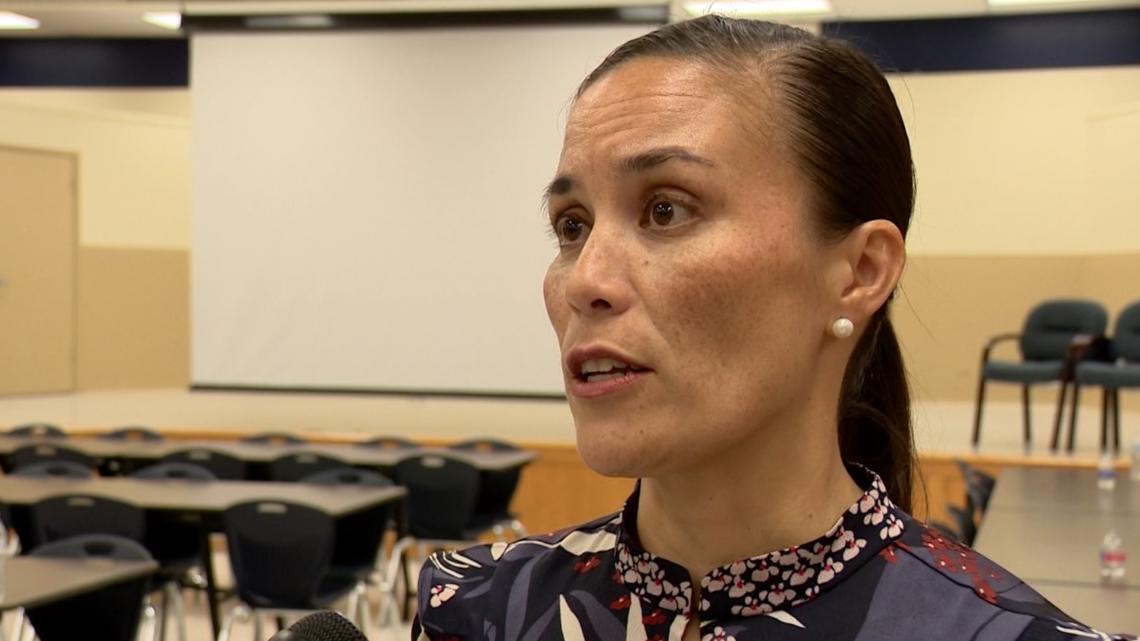
San Antonio’s mayor said in a new memo Thursday evening that the CCR process would continue as outlined in city ordinance, a day after a meeting on the issue.
SAN ANTONIO — Mayor Gina Ortiz Jones blinked first.
One day after a majority of City Council pushed back on how she tried to implement changes to the city’s policy proposal process, San Antonio’s mayor said they could continue adhering to the steps as outlined in city ordinance.
“Collectively, we share an objective of making the CCR process more efficient and effective so that we can address the community’s most pressing issues,” Jones wrote in a memo sent to council members and top city staff Thursday evening. “Given the desire to use the current process as a baseline as we look at ways to improve the process, we will revert to the process outlined in the CCR Ordinance.”
Submitting CCRs, or Council Consideration Requests, is the first step council members take to try and bring new policy or program initiatives to full City Council. Past CCRs have resulted in stronger penalties for owners of dangerous dogs; prohibited vape shops from operating near schools; streamlined utility notice for residents at risk of water disconnections.
Council members must collect at least five of their colleagues’ signatures and notify the city manager before submitting a CCR to the city clerk. From there, it is eventually discussed in the Governance Committee, which decides whether or not to advance policy proposals to full council.
But a showdown brewed when Jones told her colleagues in a July 14 memo that she was now requiring sponsoring council members to also get the initials of the city manager and city attorney, and to coordinate with her office.
“I want to make sure the City Council is spending our time wisely,” Jones told reporters at a town hall last month. “The city attorney has said very clearly, and in numerous fashions, that all of those things, I can do as the mayor.”
A trio of City Council members – Teri Castillo of District 5, Marina Alderete Gavito of District 7 and Marc Whyte of District 10 – pushed back, asserting that Jones can’t unilaterally make changes to the existing ordinance pertaining to CCR procedures. Whyte spearheaded that very ordinance, which passed in 2024.
The trio managed to force a special council meeting on the issue Wednesday, where a majority of their colleagues agreed the issue should be voted upon in a public session.
“We do not report to the mayor, we report to the residents of our districts and the city,” Alderete Gavito said at that meeting. “To me, a unilateral decision to allow unelected city staff to potentially veto some of our ideas as representatives of the community, I am gonna take issue with that.”
Jones herself took issue with the assumption she was giving her office the ability to discard CCRs before they reach the Governance Committee. She tried to chalk up her changes to “enhancements” that City Attorney Andy Segovia assured her was within her power to implement.
The Wednesday meeting ending with Jones saying she would take the feedback “under advisement.”
Come Thursday, she proved she was listening to what the council members had to say—ending a City Hall stalemate before council took the step of forcing a vote via a three-signature memo.
“It’s a good evening,” Whyte told KENS 5 on Thursday, after the memo was distributed. “This was certainly the most efficient path to get (to) where the majority of council voiced they wanted to be, which is operating under the city council-adopted ordinance that’s in place.”
Jones’ latest memo not only clears up confusion there may have been about how council members should submit CCRs, but clears the way for them to focus on priorities of the day—including discissions about Project Marvel and how to get ahead of a projected multimillion-dollar budget deficit.
The topic of CCR revisions will likely come up again. The mayor said in her memo that council members will be asked “to identify and share improvements to the process” in order to make it more effective; she had said her changes were coming from a place of wanting to minimize legal risk while ensuring all steps were being followed after the city manager wasn’t aware of a CCR submitted earlier this summer.
Jones indicated that review will happen in early 2026. Whyte said he would welcome a more collaborative updating of the CCR process while council now turns its full attention to matters of development and dollars.
“We need to be focused there and not on these internal procedural battles,” he said. “This helps us move past this and focus on the business of the people—and that’s a good thing.”
